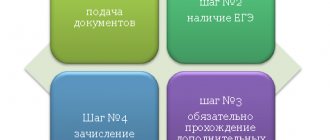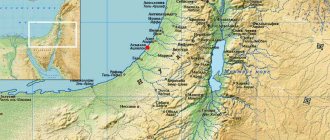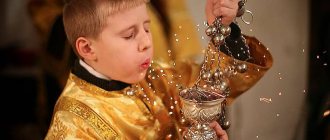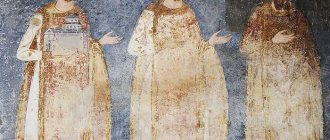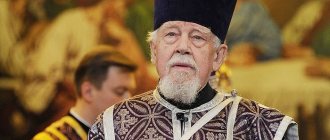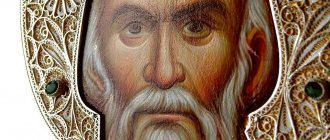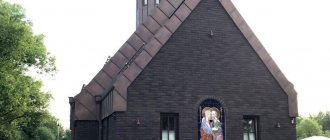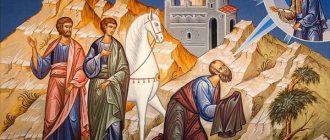Biography
Gojko Stojcevic was born at the beginning of the First World War - September 11, 1914 in the village of Kuchantsy, which at that time was part of the Austro-Hungarian Empire. His parents were simple peasants - his father, a Serb by nationality, went to work in America, but returned from there with tuberculosis and died when the boy was barely three years old.
The mother was Croatian and, after the death of her husband, was left with two small children, she married a second time, but died during her third birth. Goyko and his brother were raised by his own aunt and grandmother; later he will remember his love for his aunt as love for his mother, who loved her nephew immensely.
Patriarch of Serbia Pavel (Stojcevic)
The boy grew up extremely sickly, so he was allowed to receive an education, in contrast to the marriage, which from childhood carried out difficult peasant duties. The family was extremely religious, so the children attended Sunday school from childhood and learned the Law of God. He later said that it was being an orphan that helped him turn to his Heavenly Father from early childhood.
Gojko's successes in primary and secondary school (the city of Tuzla) confirmed the child's abilities in science, so he was sent to study further - the next step was the gymnasium of the city of Belgrade. It was there that the future shepherd's abilities for exact technical sciences were discovered, but despite them, the family insisted on spiritual education and after graduating from school he entered the seminary in Sarajevo, where he studied the Law of God for a full six years.
Goiko’s desire to become a theologian and priest was not strong; he did not memorize information by heart, so studying the Catechism was complex and difficult. As a result, having not decided on his further choice, he enters the medical faculty at Belgorod University, but after a while, realizing his desires, he is nevertheless transferred to the theological faculty, where his success soon allows him to take the position of headman.
The Second World War
Gojko graduated from the university already during the war in 1940 and worked as secretary to Vojislav Janich (Minister of Church Affairs). As soon as the Germans launched an offensive, he leaves his job as a secretary and gets a job as a military medic, but the offensive of the Germans and Croatian Ustashes forces the young man to flee from Slavonia to Belgrade, like other Serbs.
During this period, he loses his brother - he is killed in his native village by the Ustasha. Arriving in the capital, Goyko gets a job as a construction foreman - he and others clear away the rubble and ruins of the city. Poor health and endless occupations lead Goyko to the Ovcharsko-Kablar Gorge, where the Holy Trinity Monastery was located, which received all the refugees.
Doctors who examined the man there discovered tuberculosis and assumed imminent death within 3 months. However, the Lord had other plans - Goiko recovers and soon begins to teach lessons in the Law of God to children and adults.
Who isn't afraid of half naked people?
The Patriarchate often recalls one conversation between the patriarch and the deacon (who accompanied him everywhere) before leaving for a service in the church on Banov Hill. – How shall we go, by car? – the deacon asked, “prompting” the answer. - By bus! – the patriarch answered decisively. And the day promised to be hot. The deacon really didn’t want to travel by public transport. “It’s far away, it’s stuffy on the bus, there’s a crush...” the deacon tried to persuade the patriarch. - Go! - His Holiness answered briefly and firmly, already stepping forward, decisively, with a ringing sound, hitting the asphalt with his staff. - But... - following him, the resourceful deacon put forward a new, as it seemed to him, irrefutable argument - Your Holiness, it’s summer, many people go swimming at Ada Ciganlija (Belgrade beach), the buses are full of half-naked people... it’s not convenient.. The Patriarch stopped for a minute, turned to his assistant and said: “You know, father, everyone sees what they want!”
Church service
Life at the monastery (first in Ovchara, and then in Vuyan) and a miraculous recovery influenced the man, and he decided to devote his life to God: in 1948, he was tonsured a monk and received a new name - Pavel.
Father Paul at the service
Monk Pavel served 1949-1955. at the Racha Monastery, while simultaneously studying at the Prizren Seminary (1950-1951). He took the rank of hieromonk in 1954, but Paul did not stop at the seminary and in 1955 he became a graduate student in the Department of Liturgics of the Faculty of Theology in Athens and received a Doctor of Theology degree there.
After completing his studies, he was ordained to the rank of archimandrite, and even then he was known for his meekness and sharp mind, as well as his love for people. Thanks to his humble behavior, education and wisdom, the Synod of the Serbian Orthodox Church decides to elect him Bishop of Rasko-Prizren, to carry out permanent service in Kosovo and Metohija.
During this, Paul was on a pilgrimage to Jerusalem, and after his appointment he regularly made similar trips with his charges to Mount Athos and the Holy Places. Patriarch Vincent ordained the archimandrite to the bishopric in Prizren.
Having immediately begun work, the bishop began building new churches, reconstructing existing ones, and sought to preserve and restore their former honor to the Orthodox shrines of his diocese. Parishioners of the churches of Kosovo and Metohija spoke warmly of their bishop, noting his constant and painstaking work and care for the believers.
The bishop was interested in everything - he could repair locks in churches on his own, without disdaining ordinary work, and he could lecture at the Prizren Seminary on singing, and wrote scientific papers. He constantly visited different parishes without using a car - the priest was often met by parishioners in ordinary city transport or on the streets.
Father Paul was distinguished by meekness and modesty
Living in a mixed area where there was constant fighting between Serbs and Croats, the bishop often spoke at the UN on inter-ethnic problems and relations, asking for influence and solutions to these problems. Numerous witnesses claim that the constant struggle for the national rights of the inhabitants and the bishop’s desire to stop them led to threats to him personally from the Albanians.
Important! Pavel himself never complained or reported threats to government authorities, although the appeals of his loved ones also had no effect. Requests to the UN for intervention also fell on deaf ears.
All the long 34 years that the Bishop of Rasko-Prizren spent in long-suffering Kosovo and Metohija, he sought to revive the true Orthodox faith there, which was seriously damaged by two world wars, numerous occupations and godless communist propaganda. The bishop's asceticism and boundless love for people and the world made him one of the most famous and respected priests of the Serbian Orthodox Church.
“Look, Patriarch!”
One day, when Patriarch Paul was returning by tram to the Patriarchate, the incredible happened. In a crowded tram heading to the main city station, someone exclaimed: “Look, the Patriarch!” and began to make his way to him for blessing. Others followed him, and a stampede began.
Then the driver stopped the tram and demanded that everyone except the patriarch go outside. Leaving only one door open, he said: “And now, one by one...” People lined up and so, one by one, came up for the blessing.
What depends only on us
Patriarch Paul said: “We know that no one asked us whether we wanted to be born or not, whether we wanted from these or other parents, in this or that nation, in this or that spiritual environment. But whether we will live and act humanly, this, believe me, depends only on us.
I don’t know if it was so important for the holy apostles which of them would sit next to Judas and who would not, but I know that it was important for them who would become Judas and who would not. This principle should be important for both me and you, and we don’t always have the opportunity to choose who we sit next to on the tram. But who we ourselves will be, humans or non-humans, depends on each of us.”
The best people in Belgrade
One reveler, who loved to while away the time in the Question Mark restaurant, which is opposite the Patriarchate, as soon as he saw Patriarch Pavel walking past, he ran for a blessing every time. And one day, stuttering, he said:
– Your Holiness, you and I are the best people in this Belgrade! The Patriarch, seeing that he was not quite firmly on his feet, replied: “Yes, your truth, but God knows, when we get drunk, we become worse than everyone else.” Of course, the patriarch did not drink. He simply knew how to express himself in such a way that, as if taking upon himself part of this person’s sin, he did not condemn him, but warned him.
About relationship with God
“Prayer is our conversation with God, with our Heavenly Father. The Gospel says that Christ, the Son of God, retired and prayed. This was a conversation between the Son and the Father. God speaks to us through Holy Scripture, and we must answer Him in prayer. Otherwise, what kind of relationship is this, what kind of family is it, in which the son has nothing to say to his Father?”
“Without alms and compassion for others, we cannot be saved because we all, humanity, are one body.”
“A proud person sincerely believes that God owes him, and not vice versa.”
“There is the possible, there is the impossible, and there is what you must. A sense of duty and its fulfillment are the main thing.”
Till the last breath
Patriarch Paul remained Primate of the Serbian Church until his death. Even when he was seriously and dyingly ill, the Holy Synod decided not to elect a new head of the Serbian Church - everyone, both priests and laity, so inexpressibly needed this emaciated old man, who was quietly fading away in those days in the hospital of the Military Medical Academy. The patriarch is also just a man in whose life his own words were fulfilled: “When a person is born into the world, everyone rejoices, but he alone cries. But you need to live your life in such a way that when a person dies, everyone cries for him, and he alone rejoices.” And everyone really cried - about that perfect simplicity of Christianity, which, perhaps, no one in their lives would show them in such strength and depth.
“Either as people, or let us not exist” - this saying of Patriarch Paul, one of his favorites, reflected, perhaps, his whole soul. And the way of life that he led, and which sometimes for people who come to the Church and do not want to change in the Church, is the very truth that stings the eyes. But you will still have to change - so as to become not just zealots of church rituals, but also truly become people. And thank God if someone comes to this thought after reading the biography of one of the righteous people of our time. A man who lived as he spoke, and spoke as he lived, and set an example of amazing integrity in our era.
eparhia-saratov.ru
Internal state affects others
“You need to constantly grow in virtue, you need to reach the threshold - “I cannot sin.” This deep internal process, of course, is transmitted externally.
Sometimes a person will just pass by, but somehow you feel better, warmer, but you don’t know why. And, conversely, when you are around someone else, you suddenly feel uneasy. This is how people “signal” to each other about their inner self. You can cheer up, or you can get infected.
After physical death there are degrees of bliss. There are no barriers to a person’s growth in God and goodness.”
